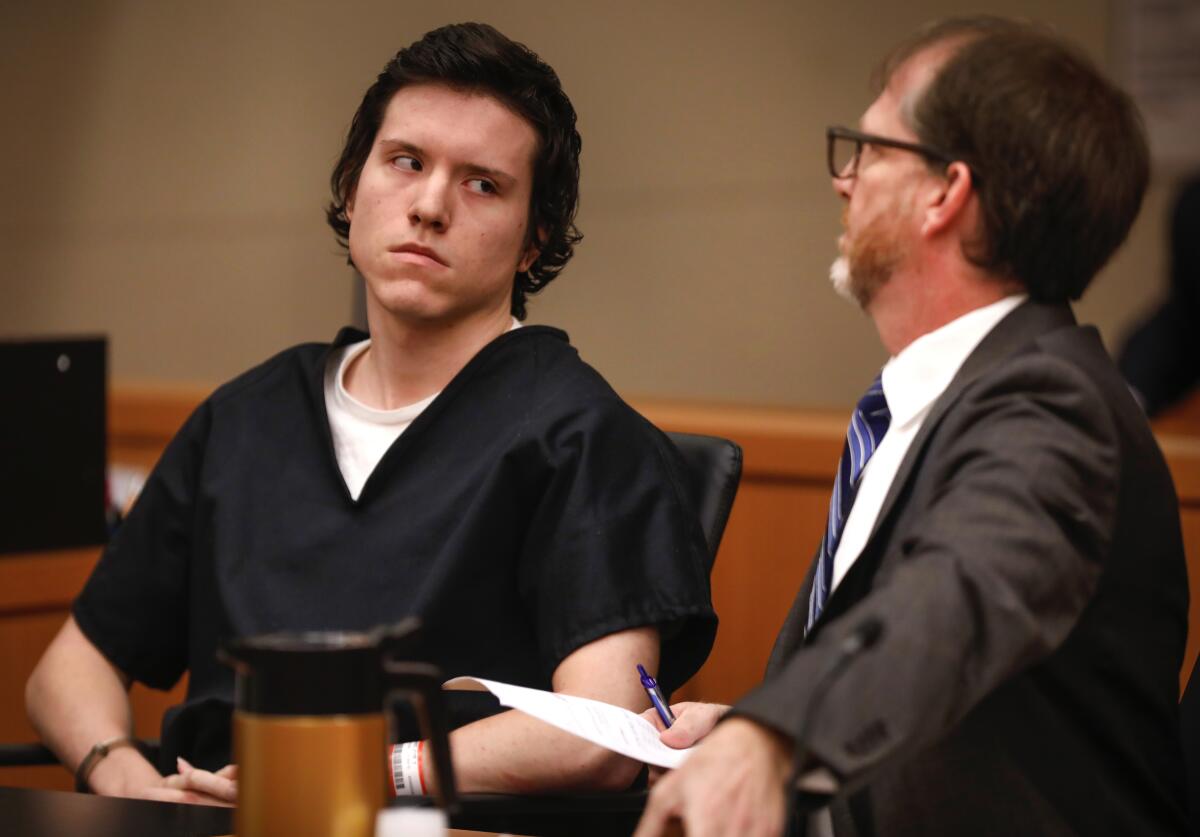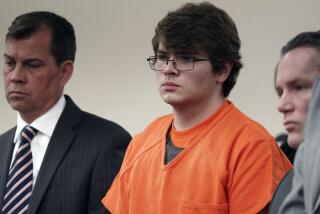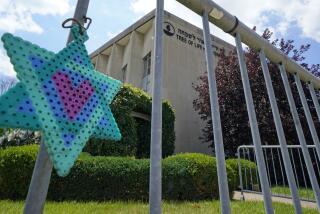Federal death penalty decision in Poway synagogue shooting likely several months away

A hearing set for suspect John T. Earnest this week has been postponed until March
- Share via
SAN DIEGO — A decision on whether to pursue the federal death penalty against the suspect in the anti-Semitic attack on a Poway synagogue is probably several more months away, according to attorneys representing both sides of the case.
A hearing to discuss the progress of the case against John T. Earnest, 20, was set for Wednesday in San Diego federal court, but in a joint filing Monday the attorneys asked that it be postponed. The next court date has been set for March 20.
The U.S. attorney’s office cited “additional time” needed to determine whether to seek the death penalty. It’s a decision that needs to be approved by the U.S. attorney general after input and recommendations by the U.S. attorney’s office, the assistant attorney general for the Civil Rights Division and others at the highest levels of the Justice Department.
“The defense has presented information for the United States to consider in making that decision, and the review process is continuing,” according to the motion. “The parties expect that review will take at least several more months.”
Federal death penalty cases are rare, and the review process is quite extensive.
U.S. District Judge Anthony Battaglia has approved the appointment of a second “learned counsel” — or attorney with special experience in death penalty cases — to Earnest’s defense team. Patrick J. Burke is a veteran criminal defense attorney based in Denver; he joins lead attorney Kathryn Nester, executive director of Federal Defenders of San Diego, as well as two others from her office.
In the motion to postpone the hearing, defense attorneys cited additional time needed to digest “voluminous” discovery generated by a “far-ranging investigation by multiple law enforcement agencies.”
The government has so far produced about 688 gigabytes of materials “consisting generally of reports of interviews of victims, witnesses, those in the area of the synagogue, Earnest’s associates, and others; items or data seized through multiple state and federal search warrants served locally and elsewhere; and many audio and video recordings,” according to the filing.
There were 54 people inside the Chabad of Poway synagogue the morning of April 27 when the shooting occurred, and the indictment counts each as a victim of a hate crime and obstruction of free exercise of religious beliefs using a dangerous weapon resulting in death and bodily injury with an attempt to kill.
Earnest is also charged with four counts of discharging a firearm during a crime of violence.
Lori Gilbert-Kaye, 60, was killed in the attack. Rabbi Yisroel Goldstein was shot in both hands, causing him to lose an index finger, while Noya Dahan, 8, and uncle Almog Peretz, 34, were wounded.
An additional charge — damage to a religious property using fire — relates to an arson at Dar-ul-Arquam mosque in Escondido on March 24.
The federal prosecution is moving in parallel with a prosecution on state charges. Following a two-day preliminary hearing in September in San Diego Superior Court, a judge ordered Earnest to stand trial. A date has not yet been set.
The district attorney’s office also has not determined yet whether to seek capital punishment.
Davis writes for the San Diego Union-Tribune.
More to Read
Sign up for Essential California
The most important California stories and recommendations in your inbox every morning.
You may occasionally receive promotional content from the Los Angeles Times.














